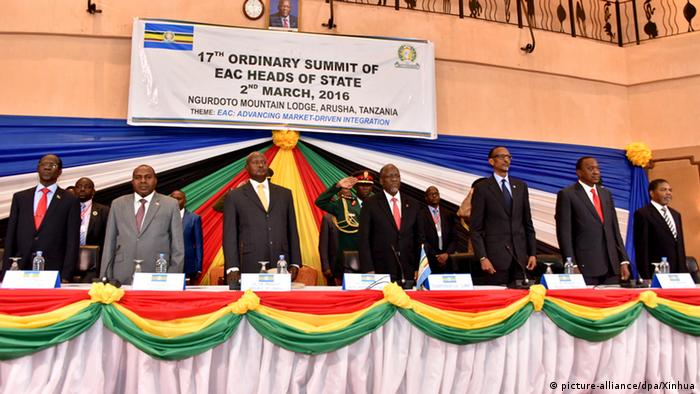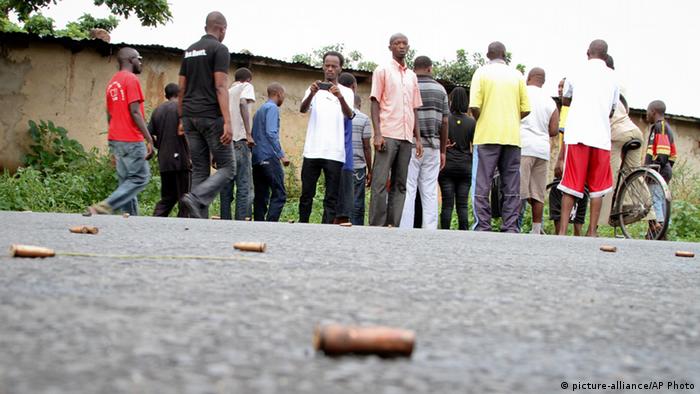According to sources at the summit, the EAC still wants to assess Somalia’s readiness to join the bloc.
As leaders of the EAC met in Arusha in northern Tanzania, one man was conspicuously missing. Burundi’s president, Pierre Nkurunziza, did not attend even though his country was bidding for the chairmanship of the bloc. The last time Nkurunziza attended an EAC summit, rebels staged a failed coup in his absence.
The group, however, rejected Burundi’s bid for this yearly chairmanship and instead decided to extend Tanzania’s tenure under President John Magufuli into a second year.
New member South Sudan
South Sudan is the newest addition to the group, which was previously made up of Uganda, Kenya, Tanzania, Rwanda and Burundi. South Sudan gained its independence from the Republic of Sudan in mid-2011, but only two years later a political split threw the country back into a civil war. Leaders from nearly all EAC countries have played a role in the peace talks between South Sudan’s president Salva Kiir and his former deputy Riek Machar. The two rival parties have now agreed upon a transitional government which is still waiting to come into force.
“South Sudan’s membership of EAC is not strictly on economic benefits but has historical significance. EAC is where we belong,” South Sudan’s vice president James Wani Igga proclaimed. He said his country had wanted to be part of East Africa even before its independence. Membership of the community means enhanced trade, economic and political ties, he said.
The application of strife-torn Somalia, which submitted a request to join the Community three years ago, has not yet been given the green light. According to sources at the summit, the EAC still wants to assess Somalia’s readiness to join the bloc.
Hands off policy on Burundi
Since Burundian resident Pierre Nkurunziza’s controversial third term bid, which resulted in violent protests, the pressure on the EAC to intervene has been immense. Ugandan president Yoweri Museveni was chosen as the group’s main mediator for Burundi in July 2015, but from the start critics pointed out that Museveni himself has served 30 years in office. At Wednesday’s summit, the group named former Tanzanian president Benjamin Mkapa as a new mediator for the Burundi crisis.
Tanzanian political scientist Mwesiga Baregu told DW that he was not surprised by the group’s choice to simply ignore Burundi’s bid. The situation in Burundi, he said, has been very difficult for the EAC to handle. “What they have done in the past is to side-track Burundi issues,” he said. “At the same time, no solution seems to be coming up in Burundi. I don’t think that you can postpone this kind of problem for a very long time before it blows up.”
Baregu, however, noted that if the EAC did not want to lose its standing, it would have to take a stronger stance on Burundi. To move forward, he thinks that the leaders need to define the actual nature of the problem. “I think part of the reason they are avoiding it is because they are not coming to any agreement on what the problem is. Is it about violation of democracy in Burundi, is it that somebody extended his period of being in power or is it something else.”
At the end of February, Burundi’s government agreed to let African Union troops and UN investigators into the country.
Charles Ngereza contributed to the article.
Source:dw.com

